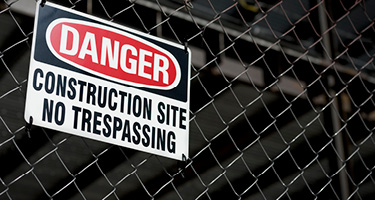As a contractor, subcontractor or supplier, few things are worse than remaining unpaid on a project. The Contractor and Subcontractor Payment Act (“CASPA”) is a now nearly 25-year old Pennsylvania statute that addresses the crippling issue of non-payment, slow payment, and late payment down the contractual chain on many projects involving improvements to real property. CASPA seeks to level the playing field by providing specific payment deadlines to ensure prompt payment to contractors, subcontractors, sub-subcontractors and suppliers. As discussed below, CASPA has broad applicability, powerful enforcement mechanisms, the recovery of counsel fees, and hefty penalty interest. Further, the Pennsylvania legislature amended CASPA in 2018, effective October 10, 2018, further sharpening the remedies for contractors, sub-contractors and suppliers.
CASPA’s Broad Application
CASPA applies to virtually all projects that involve improvements upon real estate. CASPA covers all commercial construction projects, residential construction projects of 8 units or more, all work, design, planning, supply, for erection, alteration, demolition, excavation, clearing, grading, filling, landscaping, roadway, and driveway construction, and the provision of trees and shrubbery for any of these purposes, or to perform any labor upon improvements to any real property in the Commonwealth of Pennsylvania.
CASPA provides for two significant exceptions. It does not apply to the residential construction of 7 units or less, or where an owner performs work on its own real property. Further, the construction contract may be written or oral.
CASPA’s Payment Obligations
Generally, in contracts with owners, the timing of payment is controlled first by the construction contract; however, absent an agreement, payment is due at the later of 20 days after the end of the billing period, or 20 days after delivery of invoice. As between contractors and subcontractors, contractors must first inform their subcontractors of the due date on which they expect to receive payment from the owner. Thereafter, subcontractors are entitled to be paid within 14 days of payor’s receipt of progress or final payment.
Basis for Non-Payment
A “deficiency item” is work performed which the owner, contractor or inspector will not certify as being completed according to the specifications. CASPA provides a framework protective of contractors, subcontractors, and suppliers to ensure payment on non-deficiency items, and to limit the withholding of payment to reasonable amounts only in connection with deficient work of which the unpaid party has been given timely notice.
CASPA’s Enforcement and Penalties for Non-Payment
- Interest. Unless the parties’ contract provides for a different interest amount, any progress payment or final payment that is not paid within seven days of the payment dates provided for by CASPA, then the contractor, subcontractor, or supplier shall be paid interest at the rate of 1 percent per month beginning on the eighth day.
- Penalty Interest. CASPA provides that if arbitration or litigation is commenced to recover payment due and it is determined that an owner, contractor or subcontractor has failed to comply with CAPSA’s payment terms, the arbitrator or court shall award, in addition to all other damages due, a penalty equal to 1 percent per month of the amount that was wrongfully withheld.
- Attorney Fees and Expenses. The substantially prevailing party in any proceeding to recover any payment under CASPA shall be awarded a reasonable attorney fee in an amount to be determined by the court or arbitrator, together with expenses.
Protective Language of Statute
Making a contract subject to the laws of another state or requiring that any litigation, arbitration, or other dispute resolution process on the contract occur in another state, shall be unenforceable.
CASPA’S 2018 Amendments
- Right to Suspend Work – Contractor. Under the 2018 amendments to CASPA a contractor or subcontractor now may suspend work for nonpayment under certain conditions and, in some circumstances, after a notice period. This suspension of work, under the amendment, comes “without penalty” for doing so, and, if a construction contract’s provisions exceed the act, those provisions are unenforceable.
- Right to Suspend Work – Subcontractor. CASPA creates a similar right for a subcontractor to suspend work until it receives payment required under its subcontract if each of the following has occurred: (1) payment has not been made to the subcontractor in accordance with the terms of the contract (or if the contract is silent, within 14 days after the contractor receives payment from the owner or 14 days after receipt of subcontractor’s invoice, whichever is later); (2) 30 days have passed since the end of the applicable billing period, and written notice provided to the contractor of non-payment; and (3) passage of 30 days since the written notice, and subcontractor provides a second written notice to contractor by certified mail notifying contractor of its intent to suspend.
- Deficiency Items and Waiver. As stated above, CASPA provides an owner, contractor, or subcontractor the right to withhold payment for “deficiency items.” The amendment modifies the procedures relating to the withholding of payment for deficiency items, most notably by allowing payment to be withheld only where: 1) the amount withheld is reasonable, 2) the owner provides a written explanation with a good faith reason for withholding payment, and 3) which written explanation must be made within 14 days of the date of the invoice. As a tremendous benefit to the unpaid contractor, subcontractor, and supplier, the amendment provides that if the owner (or contractor) fails to 1) withhold only a reasonable amount, 2) provide a written explanation in good faith, and 3) within 14 days of the invoice, then the owner (or contractor) waives its right to withhold payment and must pay the invoice in the full amount stated. Where an owner (or contractor) withholds payment for a deficiency item, it must continue to pay the contractor (or subcontractor) for any other item that has been satisfactorily completed under the construction contract. In other words, payments for non-deficient work may not be held hostage due to deficiency items.
- Retainage Release After Acceptance. After final acceptance of the work, under the CASPA amendments, an owner, contractor, or subcontractor may not withhold retainage for longer than 30 days after final acceptance unless the withholding party complies with the notice procedures governing withholding of payment for deficiency items explained above.
- Contractual Waivers Void. The CASPA amendments specifically prohibit waiver of the statute’s provisions by any contract or other agreement. A court should not give any effect to a contractual waiver of any CASPA provision.
- Effective Date. As a general rule, amended statutes are construed to apply prospectively so as not to impair contractual rights. The CASPA amendments do not provide any guidance as to if they are applicable to contracts already existing on the amendments’ effective date. Regardless of the applicability of the amendments, the existing version of CASPA remains a potent tool for contractors and subcontractors (and sub-subcontractors and suppliers).
Should you have a question or claim that you feel arises under the Contractor and Subcontractor Payment Act, please contact Eric B. Smith, Esquire, 215-540-2653 or esmith@timoneyknox.com.
------------
Eric Smith is admitted to practice in Pennsylvania, the U.S. District Court for the Eastern District of Pennsylvania and the U.S. District Court for the Western District of Pennsylvania. Mr. Smith’s practice focuses on commercial and real estate litigation as well as municipal litigation. His commercial litigation practice includes the representation of clients in contract and warranty disputes, disputes under UCC-Sales, construction disputes, mechanics’ liens, Contractor and Subcontractor Payment Act claims and unfair trade practice claims. He served as outside regional counsel for Home Depot U.S.A., Inc., from 2010 until 2018. Mr. Smith’s real estate litigation practice includes the defense and prosecution of title claims, adverse possession, easement, and boundary disputes, quiet title, reformation, partition, zoning, and eminent domain, as well as title agency liability and defense.
Mr. Smith served as the President of the Montgomery Bar Association in 2017, has been selected to Super Lawyers since 2005 and listed in Best Lawyers since 2017.
































